Department of Medicine looks back on 70 years of progress
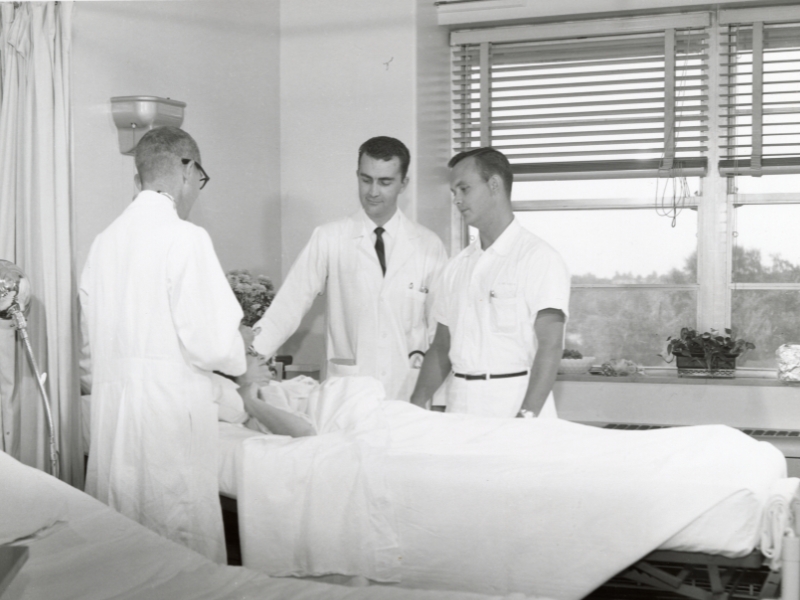
Editor’s Note: To commemorate the University of Mississippi Medical Center’s 70th anniversary, we will feature a series of stories throughout the year on the original School of Medicine departments established in 1955.
Advances in medicine at the University of Mississippi Medical Center have added years and quality to the lives of patients like Leon Stewart of Madison who, at 82, doesn’t take a single morning for granted.
“Every day that I wake up and put my feet on the floor is a good day,” he said.
Stewart has been a patient of Dr. Michael McMullan, professor of medicine and division director of cardiology, for more than two decades. Their relationship began in 2002 when Stewart had his first heart attack.
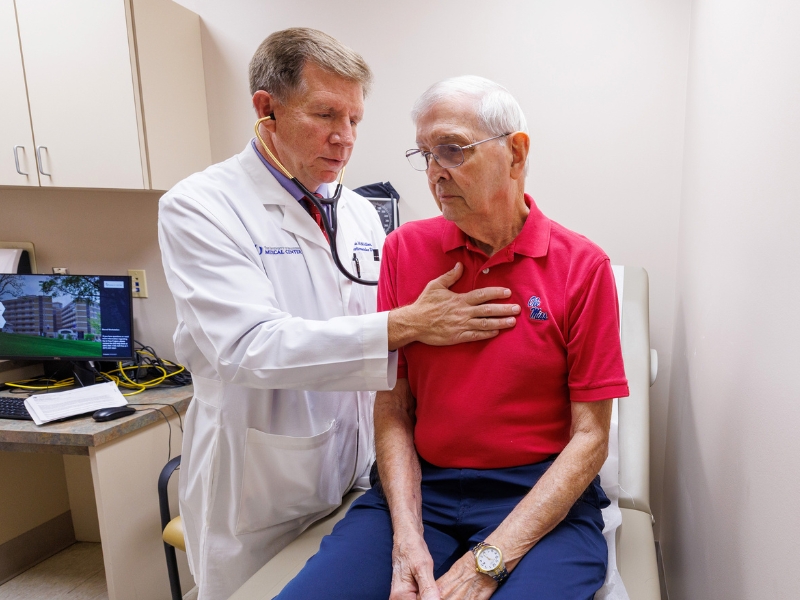
“I was coaching soccer that afternoon, then went to church to play volleyball and started feeling tightness in my chest” Stewart said. “Somebody called 911, and I wound up at UMMC meeting Dr. McMullan. I’ve seen him every six months since then.”
McMullan recommended bypass surgery, but Stewart opted for two stents instead. Nearly 20 years later, he had another heart attack on the opposite side and underwent another minimally invasive procedure. Stewart’s ongoing care allows him and his wife, Judy, to keep traveling the country, cruising the Caribbean and making trips back to Alaska, the state where they first met.
“Having been part of the Department of Medicine since the 1990s,” McMullan said, “I am continually inspired by the remarkable advancements in medical technology and pharmacotherapy, and the profound impact these innovations have had on patient care and outcomes.
“Today, we can treat coronary artery disease and acute myocardial infarctions with drug-eluting stents, significantly reducing mortality and minimizing the need for invasive surgical procedures,” he said. “Equally impressive is our ability to offer transcatheter valve replacement to patients previously deemed inoperable, achieved through a minimally invasive approach via femoral access. Those innovations represent just how far cardiovascular medicine has come at UMMC.”
The Division of Cardiovascular Diseases is just one example of the multifaceted divisions that comprise the largest clinical department at the Medical Center, and the department’s impact on Mississippians’ health over the decades is immeasurable.
A legacy 70 years in the making
When the Medical Center opened on July 1, 1955, its founding Department of Medicine was challenged to build a center of excellence for adult patient care, medical education and scientific discovery in a medically underserved state.
Led by its first chair, Dr. Robert Snavely, and pioneering faculty including Drs. Thomas “Peter” Blake, Herbert G. Langford, Warren N. Bell and Fred Allison Jr., the department began with a few inpatient wards and a shared vision of a healthier Mississippi. Seventy years later, that vision has grown into the Medical Center’s largest academic department—home to 13 divisions, more than 150 faculty and 300 staff, caring for over 120,000 outpatients each year.
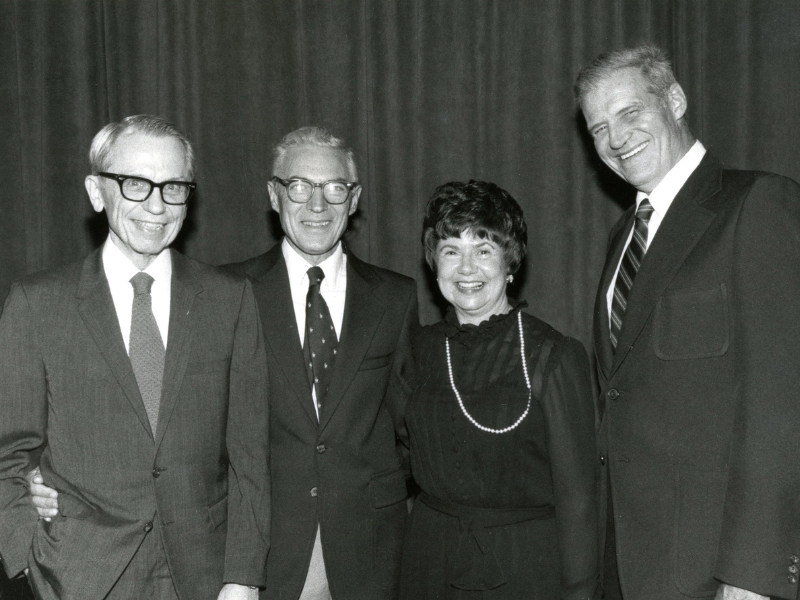
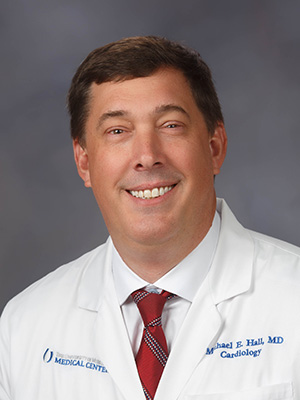
“Medicine at UMMC has always been more than a department. It’s a living ecosystem of learning, service and discovery,” said Dr. Michael Hall, The Patrick H. Lehan Endowed Chair in Cardiovascular Medicine and chair of the Department of Medicine. “Seventy years later, our mission remains the same: to train compassionate physicians, advance science and improve the health of Mississippians.”
In its first decade, the department established the clinical and research foundation on which modern medicine at UMMC stands.
By 1956, Mississippi’s first cardiac catheterization was performed in the cardiopulmonary laboratory, marking the start of advanced diagnostic care within state lines. Around the same time, early endocrine, hematology and infectious-disease divisions brought laboratory science directly to the bedside, creating the state’s first hospital-based blood bank, hematology lab and metabolic research units.
The Medical Center opened Mississippi’s first artificial kidney unit in 1966 under the leadership of Dr. John Bower, making dialysis possible for patients who once had to travel hundreds of miles for care. Soon after, his team would pioneer a home-based dialysis program decades before patient-centered care became a national trend.
In the early 1960s, internal medicine faculty were responsible for nearly half of all clinical teaching hours. The number of residents grew from three in 1955 to more than 20 by 1971, mirroring Mississippi’s increasing need for physicians.
Today, the Department of Medicine trains 500 medical students, 124 residents, and 72 fellows across 14 subspecialties, and has been voted Best Clinical Department by the Carl G. Evers Medical Student Society in 19 of the last 20 years.
The early divisions expanded and diversified to meet the needs of Mississippians and keep pace with the advancing practice of medicine, culminating in the broad range of specialties that now represent the department.
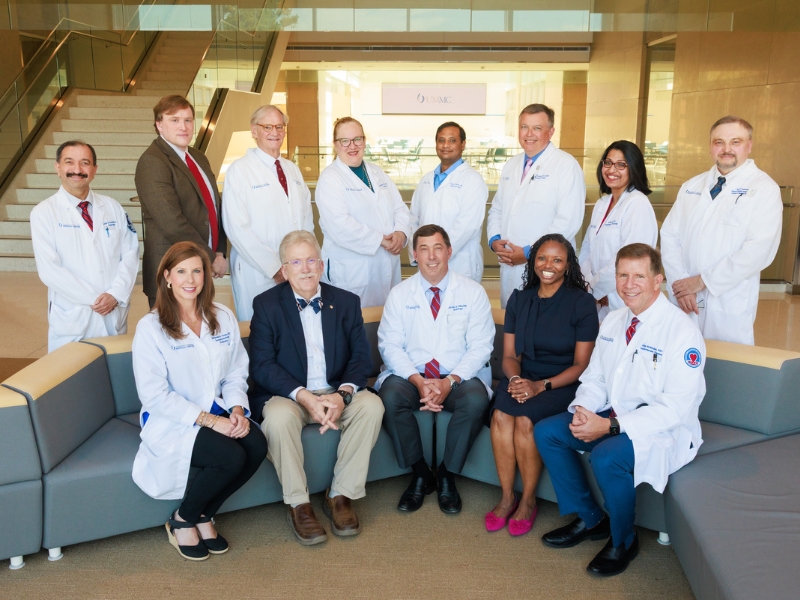
A growing network of specialty care
The Division of Cardiovascular Diseases evolved from a small teaching service into an integrated center for complex interventions, heart-failure and transplant care, and one of the nation’s first ACGME-accredited adult congenital heart disease programs. Its roots in rehabilitation trace to a 1960s four-bed stroke unit that became a national model for early recovery training, and its research arm continues to anchor statewide studies such as the Jackson Heart Study, the largest investigation of cardiovascular disease among African Americans.
UMMC remains a national leader in kidney and hypertension research. From establishing the state’s first dialysis center to providing a full spectrum of care to more than 10,000 patients annually today, the Department of Nephrology has continued to champion access for Mississippi patients battling renal illness. Ongoing studies now explore the biological and social determinants driving kidney disease and high blood pressure across the rural South.
In the Division of Endocrinology, Metabolism, and Diabetes, decades of metabolic and genetic research have transformed diabetes and thyroid care statewide. The division continues to expand community-based education and precision-medicine approaches that address Mississippi’s disproportionate burden of chronic disease.
Creating the state’s first blood bank, hematology lab and clinical training site for the treatment of cancer and blood disorders, the Division of Hematology and Oncology laid the foundation for the state’s cancer care network. Beginning as a small inpatient service that treated nearly 200 patients in its first year, it has since transformed into a multidisciplinary service within the Cancer Center and Research Institute, offering bone-marrow transplantation, clinical trials and treatments for patients across the region.
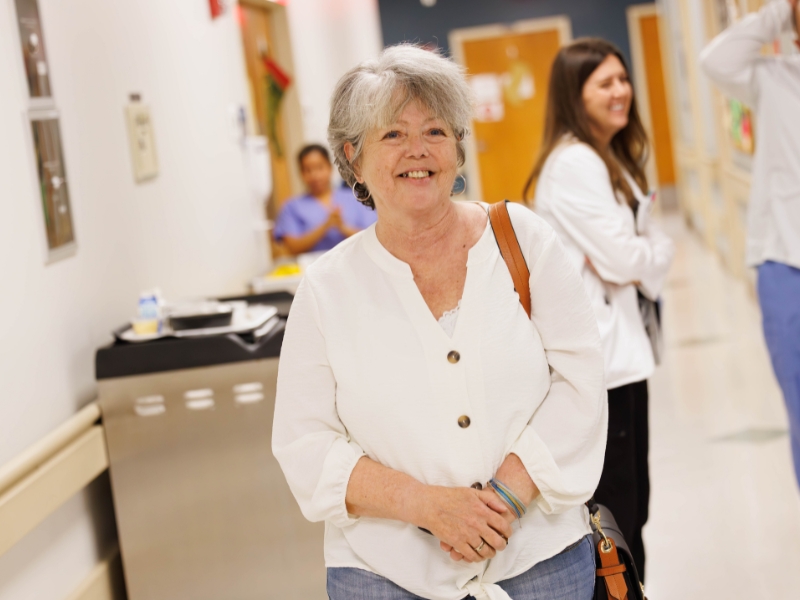
For Penny Perkins of Brandon, that expertise meant she could stay close to home while receiving treatment for multiple myeloma. Diagnosed in March 2023 and referred to Dr. Carter Milner, professor of medicine – hematology and oncology at UMMC, she began an intensive course of chemotherapy and cell therapy that placed her in remission before she ever left the hospital.
“Someone suggested I go out of state,” she said, “but that wasn’t necessary. I’ve received the best care at UMMC. It’s not like Dr. Milner is just my doctor; everyone on that team is like family.”
Now nearly two years in remission, she still visits every month for follow-up and ongoing treatment for osteoporosis, a side effect of chemotherapy. “When I thought I couldn’t go on, they pushed me. They knew what I was capable of, and they wanted to get me better. Dr. Milner told me, ‘Penny, go live your life’—and I do, because I know they’ll be there when I need them.”
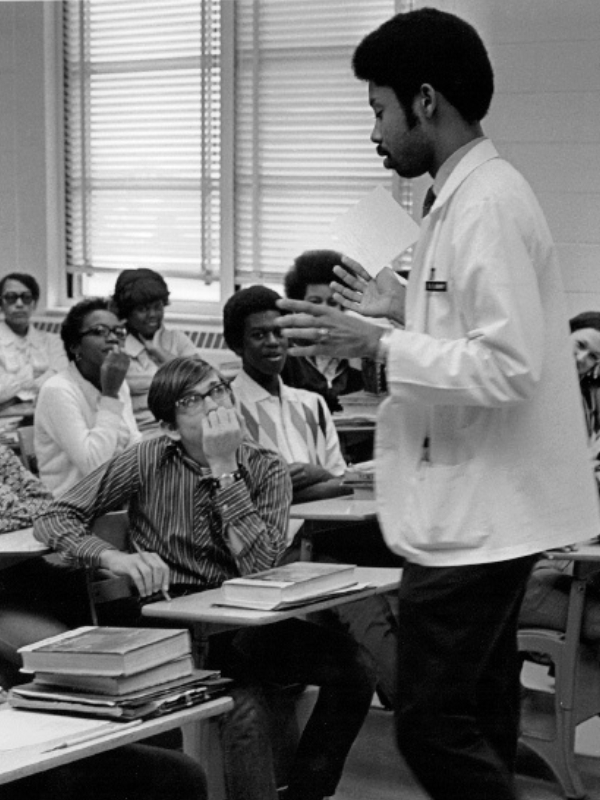
The Division of Pulmonary, Critical Care and Sleep Medicine traces its origins to a 1956 lung-function lab that laid the foundation for respiratory research and care in Mississippi. As medicine advanced, pulmonary specialists became central to the emerging field of critical care, managing patients with life-threatening respiratory and systemic illness.
By the 1970s, UMMC physicians were among the first in the region to formalize critical-care training for both physicians and nurses, integrating advanced ventilatory support and intensive monitoring into patient care.
That evolution culminated in the Wallace R. Conerly Critical Care Hospital, a 92-bed facility that brings the Medical Center’s specialized intensive-care units together under one roof, including the state’s only bone-marrow transplant ICU.
As the science of sleep evolved and its ties to respiratory health became clearer, the Medical Center established its sleep medicine program. First accredited in the 1980s, it holds Mississippi’s longest continuous accreditation from the American Academy of Sleep Medicine and remains one of the only programs in the Mid-South certified to train sleep-medicine fellows.
As medicine advanced, so did the department’s structure. In 2008, the new Division of Hospital Medicine was supported by just three faculty members. Seventeen years later, it has grown to 24 physicians and four nurse practitioners who care for more than 160 patients each day.
The Division of Infectious Diseases has evolved from post-war public health work to statewide and global reach. Its physicians care for adults with complex bacterial, viral and fungal infections operating one of the busiest inpatient services averaging 350 patient consults per month. The division is also home to the largest Ryan White funded clinic in the state, providing comprehensive care of to more than 2,300 patients living with HIV.
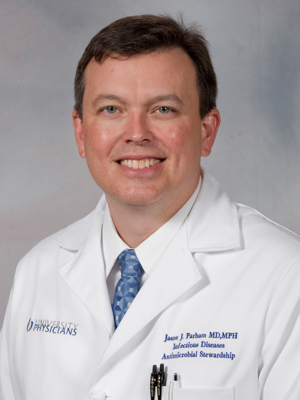
“Our physicians serve as medical leaders of the department of infection prevention, the antimicrobial stewardship program, and the outpatient antimicrobial services program, developing infection prevention protocols, investigating outbreaks, optimizing antimicrobial therapy for hospitalized patients and transitioning inpatients to safe long-term antibiotic care at home,” said Dr. Jason Parham, executive vice chair of the Department of Medicine and division chief of infectious diseases.
“The division hosts the travel medicine clinic and is one of the largest providers of hepatitis C treatment in the state. In addition to leadership roles across the institution, ID faculty also direct Mississippi State Department of Health programs in tuberculosis and sexually transmitted infections.”
The new Division of Clinical Immunology, which was formally launched in 2024 and led by Dr. Gailen Marshall, consolidated faculty and staff from Allergy, Immunology and Rheumatology, to unite these three disciplines under a single, collaborative umbrella.
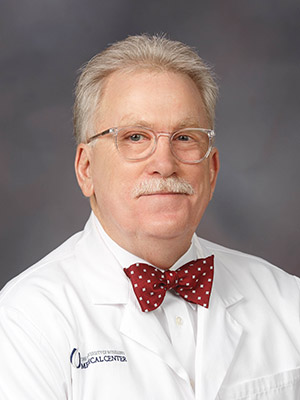
“[The new division] addresses clinical needs through supplying new subspecialty trained physicians for our state, expanding patient care for immune-based diseases on our campus and participating in cutting edge asthma, allergy, immunology and rheumatology research for the benefit of our campus and our patients,” Marshall said.
The Division of Digestive Diseases, established during the department’s early decades, has continually expanded access to advanced gastrointestinal care across Mississippi. Its specialists introduced minimally invasive techniques for complex esophageal and pancreatic disorders.
Today, the division provides comprehensive diagnostic and therapeutic services for gastrointestinal, liver and pancreatic diseases, with ongoing efforts to expand minimally invasive options and enhance fellowship training for the next generation of gastroenterologists.
Newer divisions—including Geriatrics, Palliative Care, and Medical Genetics and Genomics—represent growing specialties that have long been embedded in the department’s spectrum of care. Together, they complete the continuum of adult medicine, from preventive and precision approaches to compassionate end-of-life care and reflect the department’s commitment to treating the whole patient, not just the disease.
A healthier Mississippi
From the first metabolism and kidney studies to today’s federally funded investigations, the department’s research portfolio has remained aligned with Mississippi’s greatest health challenges—cardiovascular disease, diabetes, cancer, hypertension and health inequities.
The department’s physician-scientists continue to translate those discoveries into tangible improvements in care across every division.
As the Department of Medicine enters its seventh decade, it represents both a reflection of the Medical Center’s pioneering history and a roadmap for its future as it continues to evolve through new leadership, partnerships and research dedicated to closing the health gap between Mississippi and the rest of the nation.


